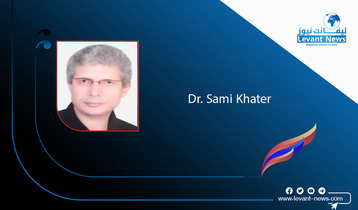-
The Power of Geography

Tim Marshall has had a long and distinguished career as a British TV and radio journalist, now based in the UK but covering a great deal of international stories, including Kosovo and Iraq and elsewhere in the Middle East. He has just published another impressive book entitled The Power of Geography: Ten Maps that Reveal the Future of Our World.
Each of its 10 chapters contain fascinating insights into the way geopolitics are influenced by multiple factors, including the actual size of individual states, their populations, mountains, rivers, seas and minerals. “The choices people make, now and in the future, are never separate from their physical context,” he writes.
He covers specific countries and regions in which the Cold War is a fading memory, but is now dominated by the US, China and Russia. Australia, a long-standing American ally, is facing a serious challenge from an increasingly assertive and cyber-expert Beijing, not least in the South China Sea; one aspect of that has been an alliance between Canberra and Tokyo.
The whole book focuses on the complex interplay between geography, history and contemporary geopolitics. In Iran, for example, a key fact is control of Straits of Hormuz – through which one-fifth of the world’s oil supplies pass – and is a card Tehran can play. Marshall is pessimistic about the prospects that the Islamic Republic might retreat from its regional strategy and nuclear aspirations. The Iranian Revolutionary Guard Corps (IRGC) has a powerful self-interest in maintaining the status quo. It “talks the revolutionary talk and walks the money- making walk”.
Another important Middle Eastern state, Saudi Arabia, is built on oil and sand: its main challenge in the coming decades is economic diversification, including focusing on solar and other forms of renewable energy. Relations between Riyadh and Washington cannot be taken for granted, and ties with Beijing are getting closer, because of the Chinese model of “state capitalism”.
The chapter on Britain is especially illuminating: “The UK lost a lot as the maps changed during the drive to decolonization; now it must navigate a new world in which empire is becoming a distant memory.” Brexit – its departure from the EU after 47 years - has considerably complicated that challenge. It is now deeply concerned about the prospect of Scotland seeking its own independence and the damage done to fragile peace in Northern Ireland.
Greece and Turkey deserve a separate look. The dominant issue, as ever, for Greece is judged to be its dominance of the Aegean; plus the recent discovery of undersea gas fields which are the source of tensions between Athens and Ankara. “At the south-eastern corner of Europe, and facing off…against its larger neighbour and nemesis, Greece now finds itself at the crossroads of the EU, Russia, NATO, the turmoil of the Middle East, and the ongoing migrant crisis,” Marshall writes.
“At a strategic level what concerns them is much the same as when they looked up to Zeus, Apollo and Aphrodite on the heights of Mount Olympus. The gods have gone, empires come and go, alliances shift, but the constants for Greeks remain what made them- the mountains and the sea.”
Turkey is characterised as following a policy of neo-Ottomanism, under President Recep Erdogan, whose rhetoric fuels Turkish xenophobia and Greek anxieties. It also affects Europe, the Middle East and central Asia. The potential for flashpoints with its western neighbour remains high – even if neither side wants a full-blown conflict. Commemoration of the Armenian genocide remain a source of tension with other countries, especially the US under Joe Biden.
The chapter on the Sahel is especially grim. Stretching south of the Maghreb, the countries it includes are some of the poorest on the planet: Mali, Niger, Burkina Faso, Chad and Somalia. Climate change is making their problems far worse: “When the rains fail so do the crops. When the lakes shrink so does the food supply. When this happens, people move; and when people move, the places they move to are often not ready for them.”
Another destabilising factor is jihadist rebels – mainly Tuareg. Isis, al-Qaeda and local groups are all challenging their current regimes as well as the US and France, the former colonial power. China’s expanding military activity in the Sahel region, dovetailing with its Belt and Road trade initiative, provides a clue to what the future holds.
Another chapter deals with Ethiopia, which has the second biggest population (110 million) in Africa and dominates the Horn of Africa, one of the regions of the world most affected by conflict – whether civil wars, border disputes, extremism and piracy. Water is the key to its influence, especially over Sudan, Egypt and Eritrea.
As if those terrestrial problems were not challenging enough, the next potential is control of space. That’s way beyond the “space race” of the 1960’s and 1970’s. In October 2020 the US and key allied agreed the Artemis Accords, governing the exploration of the Moon and extraction of its resources. China and Russia did not sign: a Moscow space official described a possible invasion of the Moon as “another Afghanistan or Iraq.” That’s a scary view of the future of our universe.

BY: IAN BLACK
You May Also Like
Popular Posts
Caricature
BENEFIT AGM approves 10%...
- March 27, 2025
BENEFIT, the Kingdom’s innovator and leading company in Fintech and electronic financial transactions service, held its Annual General Meeting (AGM) at the company’s headquarters in the Seef District.
During the meeting, shareholders approved all items listed on the agenda, including the ratification of the minutes of the previous AGM held on 26 March 2024. The session reviewed and approved the Board’s Annual Report on the company’s activities and financial performance for the fiscal year ended 31 December 2024, and the shareholders expressed their satisfaction with the company’s operational and financial results during the reporting period.
The meeting also reviewed the Independent External Auditor’s Report on the company’s consolidated financial statements for the year ended 31 December 2024. Subsequently, the shareholders approved the audited financial statements for the fiscal year. Based on the Board’s recommendation, the shareholders approved the distribution of a cash dividend equivalent to 10% of the paid-up share capital.
Furthermore, the shareholders endorsed the allocation of a total amount of BD 172,500 as remuneration to the members of the Board for the year ended 31 December 2024, subject to prior clearance by related authorities.
The extension of the current composition of the Board was approved, which includes ten members and one CBB observer, for a further six-month term, expiring in September 2025, pending no objection from the CBB.
The meeting reviewed and approved the Corporate Governance Report for 2024, which affirmed the company’s full compliance with the corporate governance directives issued by the CBB and other applicable regulatory frameworks. The AGM absolved the Board Members of liability for any of their actions during the year ending on 31st December 2024, in accordance with the Commercial Companies Law.
In alignment with regulatory requirements, the session approved the reappointment of Ernst & Young (EY) as the company’s External Auditors for the fiscal year 2025, covering both the parent company and its subsidiaries—Sinnad and Bahrain FinTech Bay. The Board was authorised to determine the external auditors’ professional fees, subject to approval from the CBB, and the meeting concluded with a discussion of any additional issues as per Article (207) of the Commercial Companies Law.
Speaking on the company’s performance, Mr. Mohamed Al Bastaki, Chairman BENEFIT , stated: “In terms of the financial results for 2024, I am pleased to say that the year gone by has also been proved to be a success in delivering tangible results. Growth rate for 2024 was 19 per cent. Revenue for the year was BD 17 M (US$ 45.3 Million) and net profit was 2 Million ($ 5.3 Million).
Mr. Al Bastaki also announced that the Board had formally adopted a new three-year strategic roadmap to commence in 2025. The strategy encompasses a phased international expansion, optimisation of internal operations, enhanced revenue diversification, long-term sustainability initiatives, and the advancement of innovation and digital transformation initiatives across all service lines.
“I extend my sincere appreciation to the CBB for its continued support of BENEFIT and its pivotal role in fostering a stable and progressive regulatory environment for the Kingdom’s banking and financial sector—an environment that has significantly reinforced Bahrain’s standing as a leading financial hub in the region,” said Mr. Al Bastaki. “I would also like to thank our partner banks and valued customers for their trust, and our shareholders for their ongoing encouragement. The achievements of 2024 set a strong precedent, and I am confident they will serve as a foundation for yet another successful and impactful year ahead.”
Chief Executive of BENEFIT; Mr. Abdulwahed AlJanahi commented, “The year 2024 represented another pivotal chapter in BENEFIT ’s evolution. We achieved substantial progress in advancing our digital strategy across multiple sectors, while reinforcing our long-term commitment to the development of Bahrain’s financial services and payments landscape. Throughout the year, we remained firmly aligned with our objective of delivering measurable value to our shareholders, strategic partners, and customers. At the same time, we continued to play an active role in enabling Bahrain’s digital economy by introducing innovative solutions and service enhancements that directly address market needs and future opportunities.”
Mr. AlJanahi affirmed that BENEFIT has successfully developed a robust and well-integrated payment network that connects individuals and businesses across Bahrain, accelerating the adoption of emerging technologies in the banking and financial services sector and reinforcing Bahrain’s position as a growing fintech hub, and added, “Our achievements of the past year reflect a long-term vision to establish a resilient electronic payment infrastructure that supports the Kingdom’s digital economy. Key developments in 2024 included the implementation of central authentication for open banking via BENEFIT Pay”
Mr. AlJanahi concluded by thanking the Board for its strategic direction, the company’s staff for their continued dedication, and the Central Bank of Bahrain, member banks, and shareholders for their valuable partnership and confidence in the company’s long-term vision.
opinion
Report
ads
Newsletter
Subscribe to our mailing list to get the new updates!




















